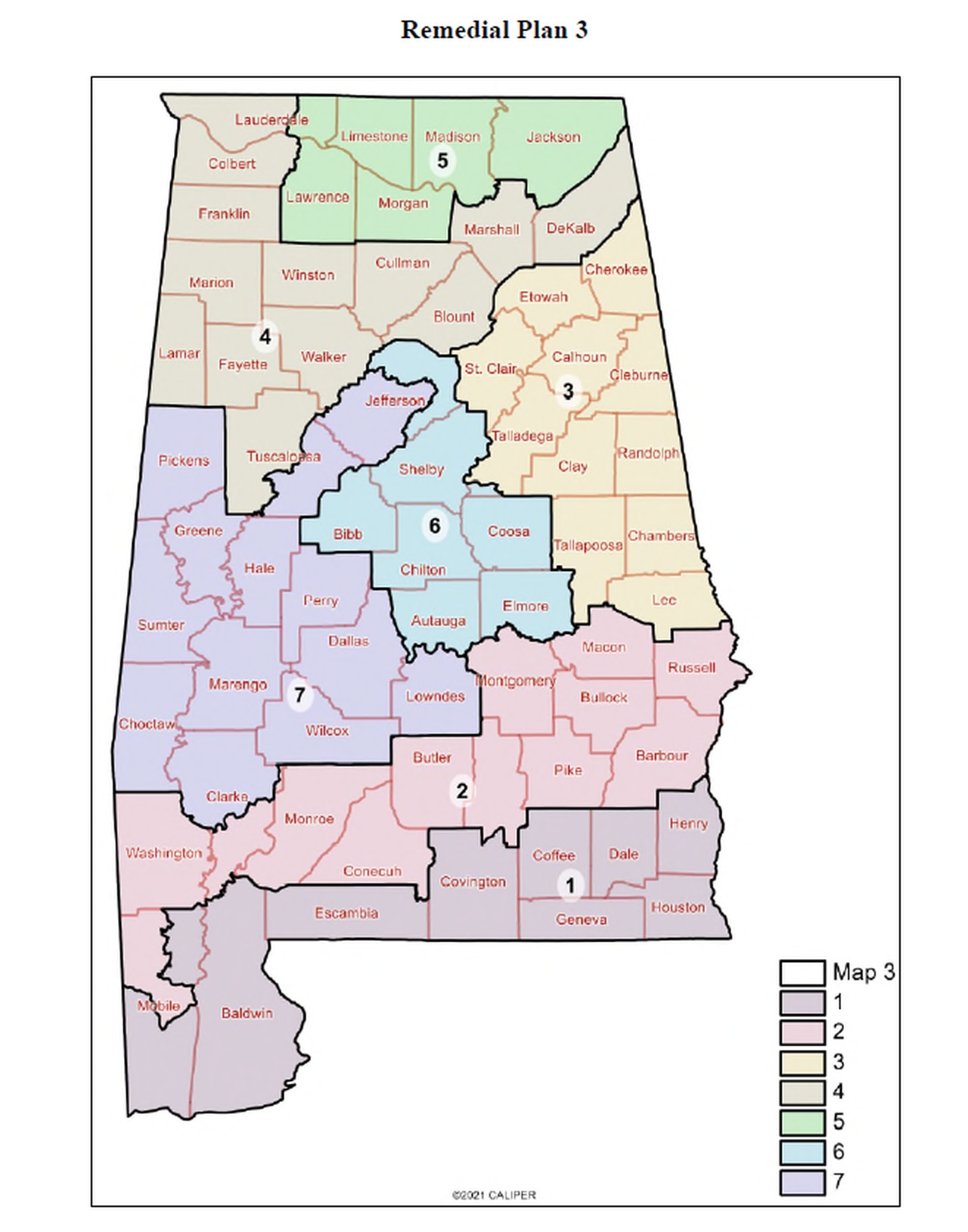Court ordered voting map will be used for 2024 congressional elections even as state continues to fight, AG says
A new state congressional map ordered by federal judges earlier this month will be used in the 2024 election even as the state continues its opposition against it, Attorney General Steve Marshall clarified to Jefferson County elected leaders Wednesday.
The map creates a new District 2 in south Alabama where Black residents comprise nearly half of the voting age population. While state officials including Marshall continue to oppose the new district map, the document will determine the next members of Congress from Alabama, he said.
“As a result of the most recent order from the three-judge panel, the map that the court has ordered will be in play for the 2024 election,” Marshall said.
Marshall made his comments near the end of his presentation to the room of Jefferson County mayors and county commissioners gathered for their regular monthly meeting. His remarks are among his most direct regarding use of the new map for the next election cycle.
Marshall favors a map that was approved by the Republican-dominated Alabama Legislature. The three-judge panel rejected that document as inadequate in addressing a likely violation of the Voting Rights Act and failing to provide more balanced representation in a state where 27 percent of Alabama’s residents are Black.
The question over which map would be used and its political ramifications has long been a source of contention and litigation that went all the way to the U.S. Supreme Court.
Alabama congressional Map 3 recommendation Sept. 25, 2023
The new document carves out a newly configured district where a Black candidate and presumably a Democrat, will have a greater likelihood of winning a congressional race. Party loyalty in Alabama is mostly racially polarized with Black voters favoring Democrats and White voters supporting the GOP.
As a result of the new map, Alabama could have two Black or Democratic members of its delegation. U.S. Rep. Terri Sewell, D-Birmingham, is currently the lone Black and the sole Democratic member from the state.
Alabama’s case has drawn national attention as Republicans seek to maintain their narrow majority in the House of Representatives and Democrats seek ways to return the gavel to their side.
Marshall, a Republican, claimed each of the alternative maps were unconstitutional racial gerrymanders. But the Supreme Court declined the state’s request for an emergency stay that would have blocked the three-judge court from drawing the new map.
“The litigation, though, continues to proceed,” Marshall said. “We’ll have an opportunity to have a full hearing in front of the three-judge panel at a time they set to address whether or not the map the legislature passed last session will come back into play. There’s a lot of work to be able to do on that front.”
In the meantime, Marshall told leaders to use the new map as a manual for 2024.
“When you’re looking at where lines are in your respective cities that’s the one that will help guide you on that,” he said.
